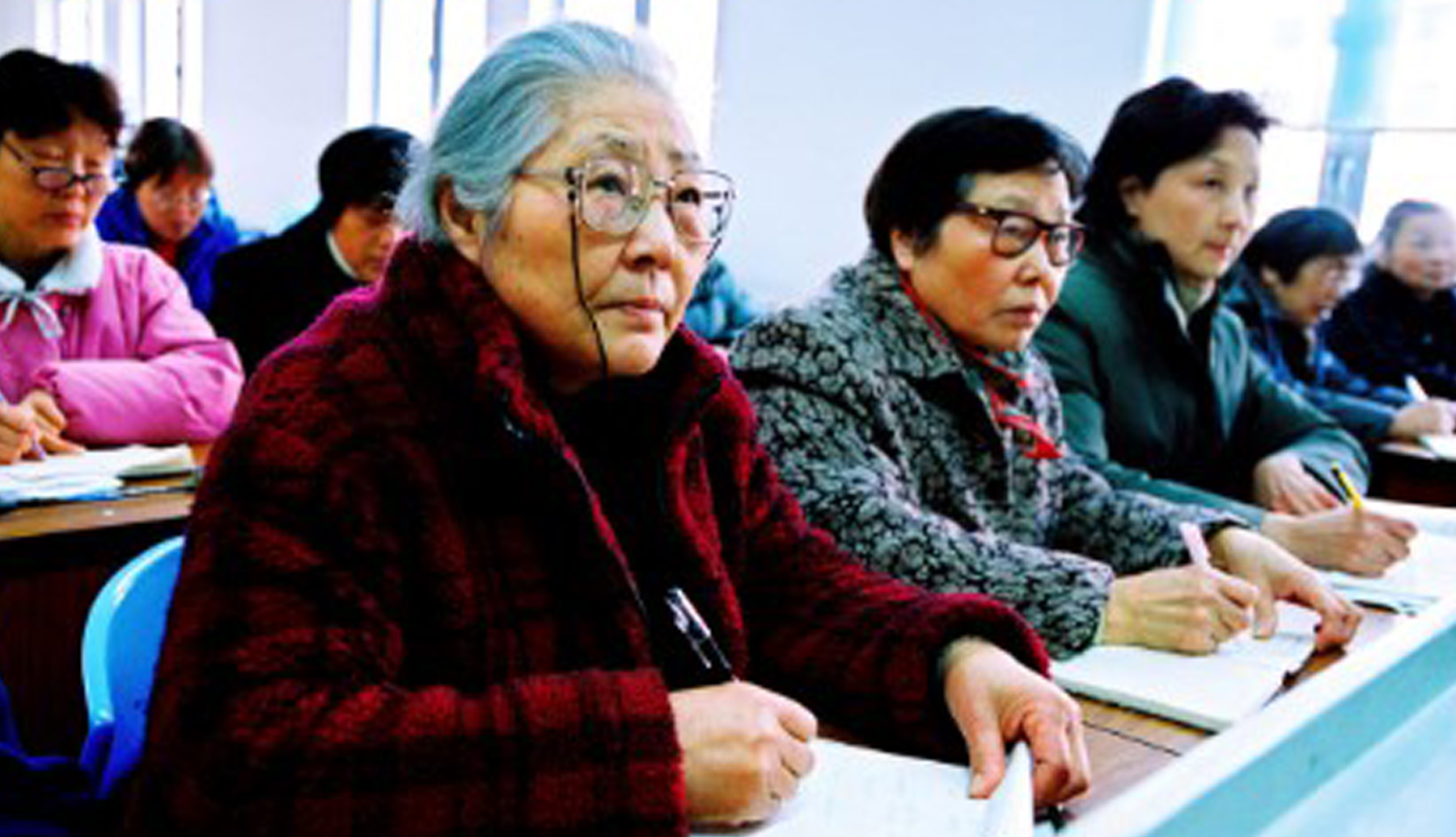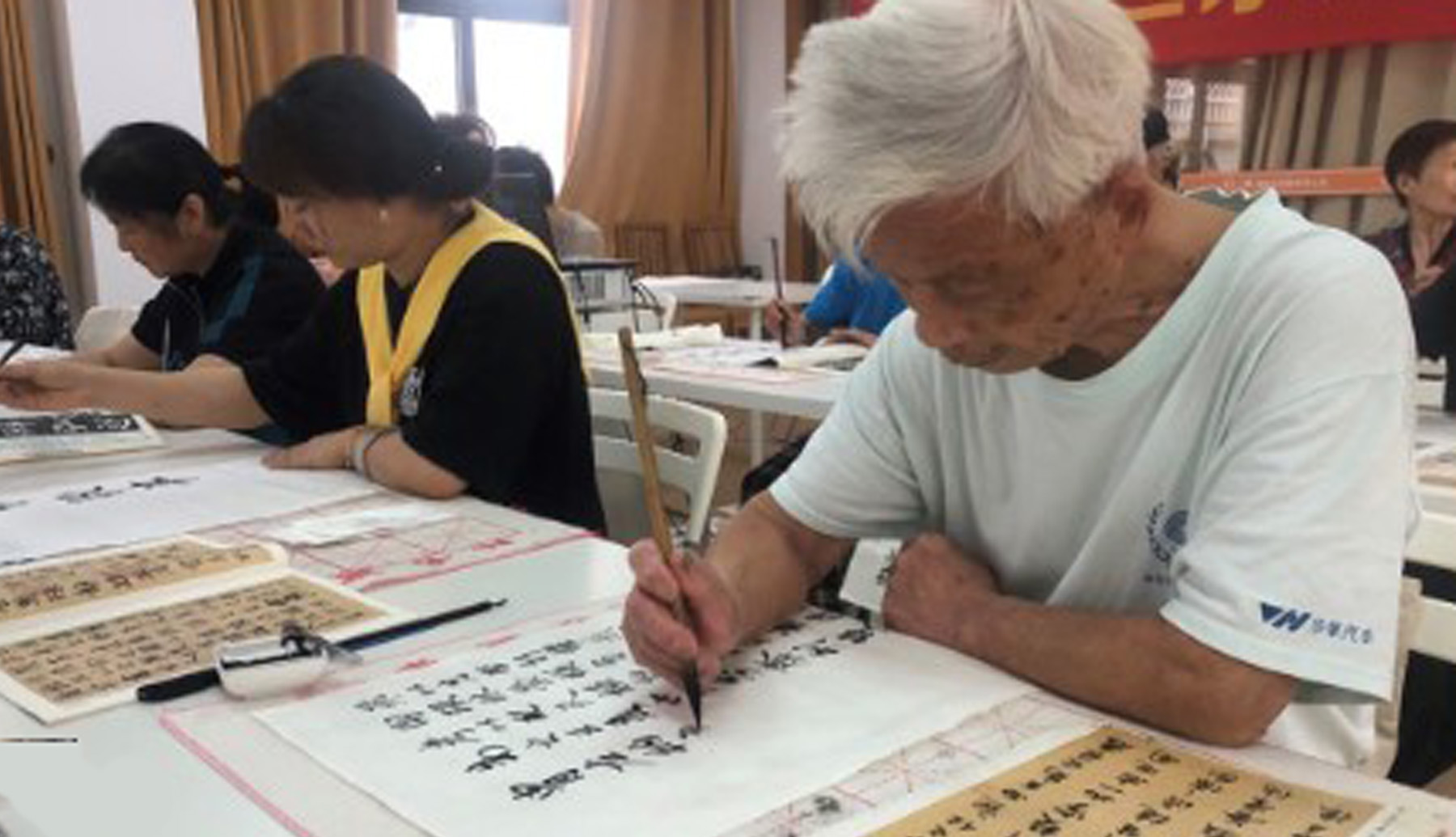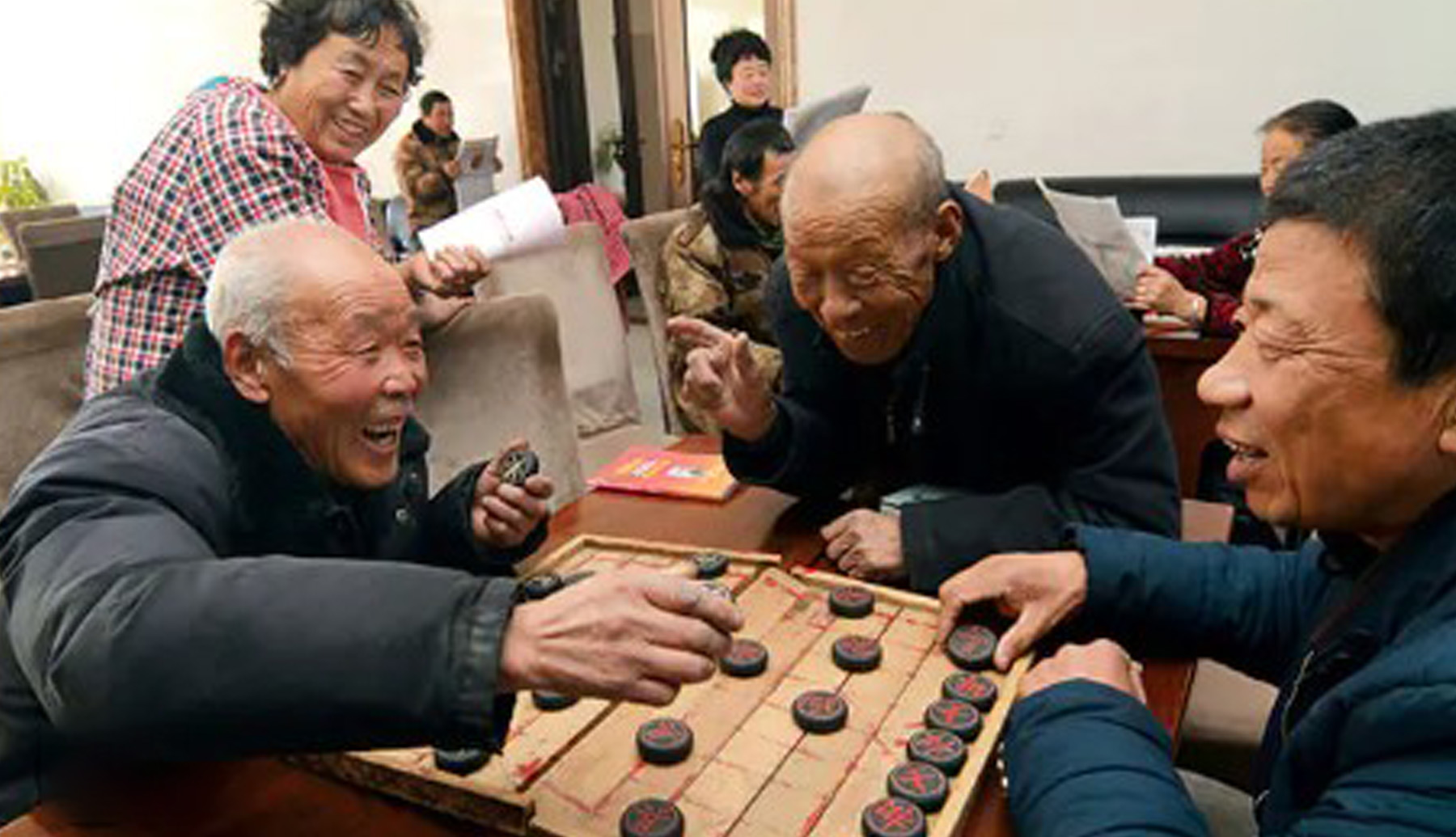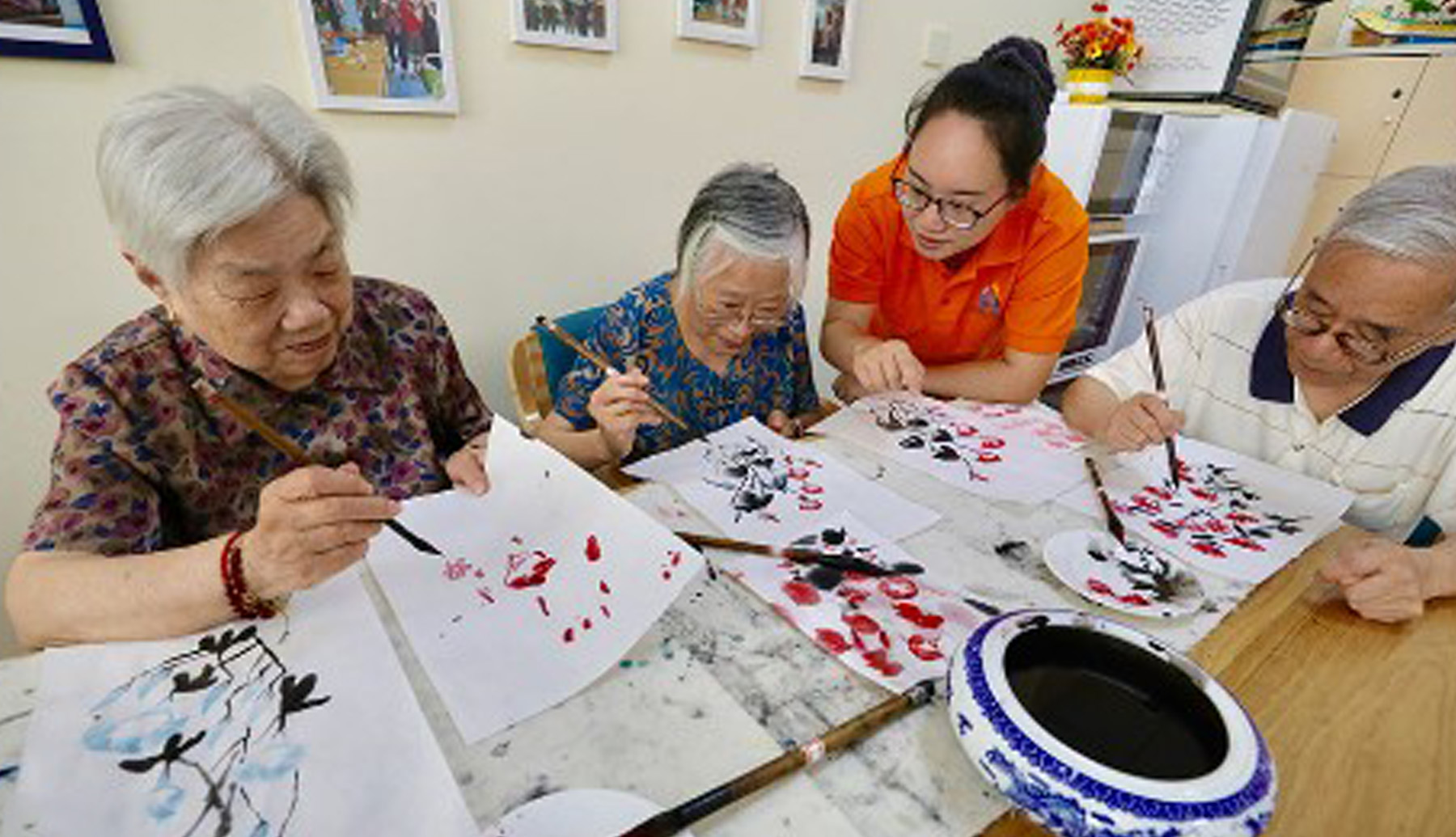Transforming Negative Perceptions of Aging in the Chinese Community: The Importance of Education and Personal Growth for Seniors
by Alex Fok
 You can listen to an audible version of this article.
You can listen to an audible version of this article.
Introduction
As a person reaches the stage of life known as the golden age, it means they have gone through childhood, youth, and middle age. There is a belief held by some that when a person reaches this stage of life, their days are effectively over; and they have become a burden on their family and the society. This is particularly true among Chinese seniors.
This can lead to feelings of depression and despair; and some older adults may even give up on themselves and become isolated. It is important to find ways to change this negative perception of aging, and improve the quality of life for older individuals. What can be done to address this problem? How can we help senior adopt a positive and forward-thinking outlook on aging, and enjoy their golden years with a sense of fulfillment and purpose? It is important for the seniors to remain socially active and engaged with the world around them. This means adapting to changes in their own lives and the broader social environment. Continue education and opportunities for personal growth could be the key in helping older adults maintain a sense of purpose and connection to the world.
The Role and Benefits of Continue Education for Chinese Elderly
Continue education can benefit seniors, their families; and the community as well. Some of the potential benefits of these education programs include:

Cultural Literacy and Spiritual Enrichment
Promoting continue education programs provide seniors with opportunities for systematic and extensive learning, and can help develop their appreciation for, and ability to create artistic and cultural literacy.
Senior education programs can offer a wide range of activities and opportunities that can enrich the lives of seniors and improve their spiritual well-being. These programs can encourage seniors to engage in activities such as reading, writing, traveling, and using the internet; which can make their lives more fulfilling. Many seniors view their participation in these programs as god-sent because of the positive impact they have on their daily routines and habits.
Restore Mental Balance and Improve Physical Health
Older adults of this generation often have a strong work ethic and sense of responsibility, having dedicated themselves to building and contributing to society. However, after retirement, some may experience negative emotions such as loneliness, idleness, and depression, which can lead to declining health and an increase in diseases. Participation in senior education programs can help alleviate these negative moods and feelings of frailty and sadness. This change in outlook can also improve their sense of social responsibility and help to restore their enterprising spirit.

Enhance Inter-Generation Relationships and Promote Harmony in Family
Elderly often experiences poor mood after retirement, which manifests as irritability and loneliness and can disrupt family life. However, by maintaining a positive attitude, keeping an open mind, and building relationships with neighbors, it is possible to learn and grow from the experiences of old age. Conflicts with others, particularly other elderly people, will be greatly reduced. There is mutual love and respect between the young and the old, and they can learn from each other. It is a wonderful thing when couples, classmates, grandparents, and grandchildren teach each other. The saying that when one person receives an education, the entire family benefits is well-known and holds true.
Promote Social Progress and Build Material Prosperity
Enhancing social and material progress is a key objective that can enrich the quality of life for individuals, as well the entire community.
Promoting social civilization involves working to improve the social and cultural systems that shape our society. This includes efforts to promote equality, justice, and inclusivity; as well as efforts to improve education, healthcare, and other social services.
Building material progress involves developing the infrastructure and resources needed to support economic growth and development. This can include investments in infrastructure such as roads, bridges, buildings, schools and civic centres; as well as efforts to increase productivity and efficiency through the use of technology and other resources.
The advancement of both social and material progress is crucial for the overall prosperity and well-being of a society. These two aspects are often interconnected: as a strong social system can foster economic growth and development; while a robust economy can provide resources for investing in social services and infrastructure.
Continue education can be a powerful tool for promoting the well-being and vitality among seniors. By providing educational opportunities and activities, continue education can help seniors stay engaged and active, which can help to improve their physical and mental health. It can also help to promote social connectedness and a sense of purpose, which can be particularly important as people age; and may face challenges such as retirement or the loss of loved ones. In addition, continue education can help older adults to develop new skills and interests, which can help to keep their minds sharp and active. Overall, elderly education can be an important resource for helping older adults to lead fulfilling and meaningful lives as they age.

Continue Education and Socialization of Older Adults in the Chinese Community
Continue education plays a key role in helping older adults to adapt to the requirements of daily social life and interact with others in society. It helps them to rearrange their lives according to social norms and meet the needs of themselves and their families. While many older adults may have already developed these skills and abilities earlier in life, the aging process can weaken their adaptability and cause some older adults to become disconnected from society and struggle to fit in with the wider community. The effects of aging can manifest in various ways, including changes in physical, mental, and social functioning. Elderly education can help to mitigate these effects and support older adults in leading fulfilling and engaged lives.
Physiological aspects: As people age, they often experience a decline in various physiological functions and an increase in chronic health conditions. Examples of such conditions that commonly affect seniors include heart disease, diabetes, arthritis, and Alzheimer's disease. Continue education can help addressing these challenges by providing older adults with the knowledge and skills needed to manage their health conditions and maintain a higher quality of life.
Aging can lead to physiological changes that can weaken psychological adaptability, decrease thinking ability, cause emotional instability, and reduce hobbies and activities. These changes can result in abnormalities in personality and a sense of aging and death. Continue education can help to mitigate these negative effects by providing older adults with the resources and support they need to maintain cognitive function, emotional well-being, and a sense of purpose and engagement. By participating in continue education activities and programs, older adults can stay active, learn new things, and continue to grow and thrive as they age.
Social aspects: Before retirement, many older adults have professional experience and technical expertise; and often enjoy respect and social status in society. However, upon retirement, their social activities may decrease and their social status may decline. This can lead older adults to face the decision of how to spend their remaining years. For older adults, "socialization" is a crucial factor in determining whether they will be able to enjoy their old age comfortably. Continue education can help to facilitate socialization by providing older adults with opportunities to engage with others and participate in activities that promote social connection and a sense of purpose.

Objective of Education for The Elderly
The objective of continue education is to provide older adults with the knowledge, skills, and support they need to lead fulfilling and meaningful lives as they age. This may include helping them to adapt to the challenges of aging, such as physical and cognitive changes, and to maintain social connections and a sense of purpose. Continue education for seniors may also involve helping older adults to develop new skills and interests, and to stay engaged and active in their communities. The purpose of continuing education for seniors is to assist older adults in leading healthy, meaningful, and active lives as they grow older.
Retirement can bring about significant changes in an individual's social identity, social relationships, responsibilities, and societal expectations. Continue education can help them understand and navigate these changes by providing guidance on their new obligations and rights, and on the norms of daily behavior and social interaction. This process of "socialization" is an important aspect of elderly education. The objectives of elderly education may include helping older adults to understand and adapt to their changing roles and responsibilities, to maintain social connections and a sense of purpose, and to develop new skills and interests. Continue education for seniors supports older adults in leading meaningful and active lives as they age.
Update Knowledge and Skills
To lead fulfilling lives in their golden years, it is crucial for older adults to remain engaged and active in social and community activities. However, in today's rapidly advancing society, the knowledge and skills that older adults acquired earlier in life may not be sufficient to keep pace with the changing world. To continue participating in modern society, one may need to update their understanding of current affairs, cultural and historical knowledge, as well communication and writing skills. Engaging in recreational activities and hobbies, such as calligraphy, painting, chess, drama, gardening, and photography, can also enrich their spiritual lives. Additionally, learning about health care and taking steps to maintain their health can help older adults to stay active and healthy as they age. Continue education can provide older adults with the resources and support they need to stay engaged, active, and informed in today's society.
Acquiring and Mastering Modern Social Norms
Although older adults may have accumulated a lot of social experience over their lifetimes, it is still important for them to stay informed about the constantly evolving norms and expectations of society. For example, the elderly may be unfamiliar with new social services or may need to learn the norms and codes of conduct for participating in peer groups, such as Tai Chi classes, poetry and painting clubs, or senior citizen clubs. In these settings, older adults may need to learn how to communicate and interact with others in an equal and respectful manner, regardless of their past status or social position. Continue education can provide older adults with the resources and support they need to stay informed about social norms and expectations, and to participate fully in society as they age.
Establish A Correct Outlook on Life and Senior Values
Forming positive personal value system and life-goals is a process that can help individuals to find purpose and meaning in life. While many older adults in the Chinese community may have had positive life pursuits earlier in life, the transition to a more rest-oriented social role upon retirement can sometimes be accompanied by negative emotions. Continue education can help older adults to develop positive outlook on life and to find meaning and purpose in their golden years. By learning new things and engaging in activities that promote personal growth and fulfillment, older adults can reduce negative emotions and approach their retirement years of life with a positive attitude.

Acquire New Social Roles
Elderly socialization is a key aspect of continue education for seniors and an important task in itself. As seniors go through rapid role changes during golden age, it is important for them to consciously and timely adjust to these changes through learning. By doing so, they can position themselves appropriately on the social stage and use their new roles to demonstrate their value and create a fulfilling life in their retirement years.
Keep Pace with The Times
For "Modern Seniors" to stay current, lifelong learning and growth is essential. Many older adults in the Chinese community recognize this. Nowadays, older adults have many advantages and opportunities that their predecessors did not have, thanks to the advancement of civic systems and modern technologies. Having worked for many years and gained a wealth of life experience, older adults have valuable knowledge and skills to share. After retiring, they may have more free time to explore new social roles and can use their skills and knowledge to serve their communities. This not only can benefit society, but also help older adults to overcome negative attitudes about aging and feeling useless, and to continue to grow and thrive as they age.
Education programs for seniors can have numerous benefits, for society, and individuals participating in them. These programs can help seniors overcome negative attitudes about aging and feeling useless, and provide them with the resources and support they need to continue growing and thriving as they age. By participating in these programs, seniors can pursue new opportunities and engage in meaningful activities during their golden years.
Conclusion
As a democratic and free country, Canada offers numerous opportunities for older adults to remain active and contribute to society in their golden years. With good health and resilience, seniors in Canada can continue to make a difference and have a positive impact on their communities and the country as a whole.
By learning to adapt to their environment and embrace new challenges, older adults can find new ways to engage with their communities and make a positive impact. Continue education can provide older adults with the resources and support they need to pursue these opportunities and make the most of their lives. ![]()







